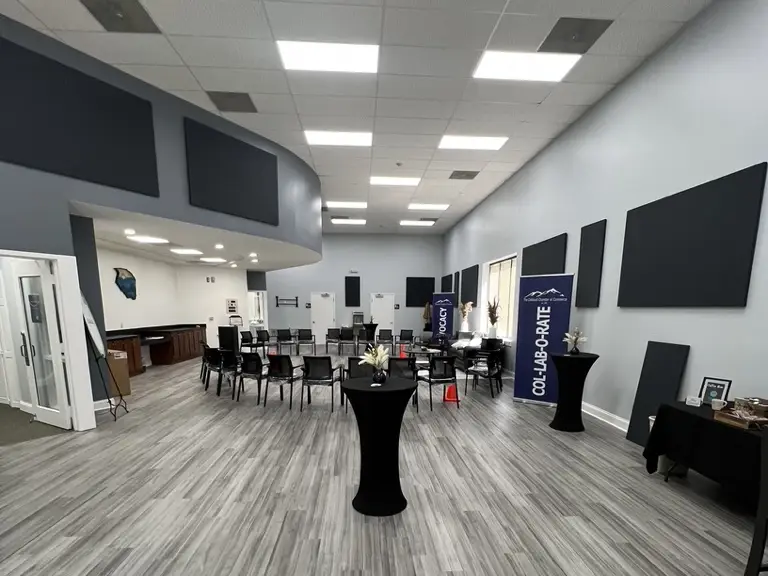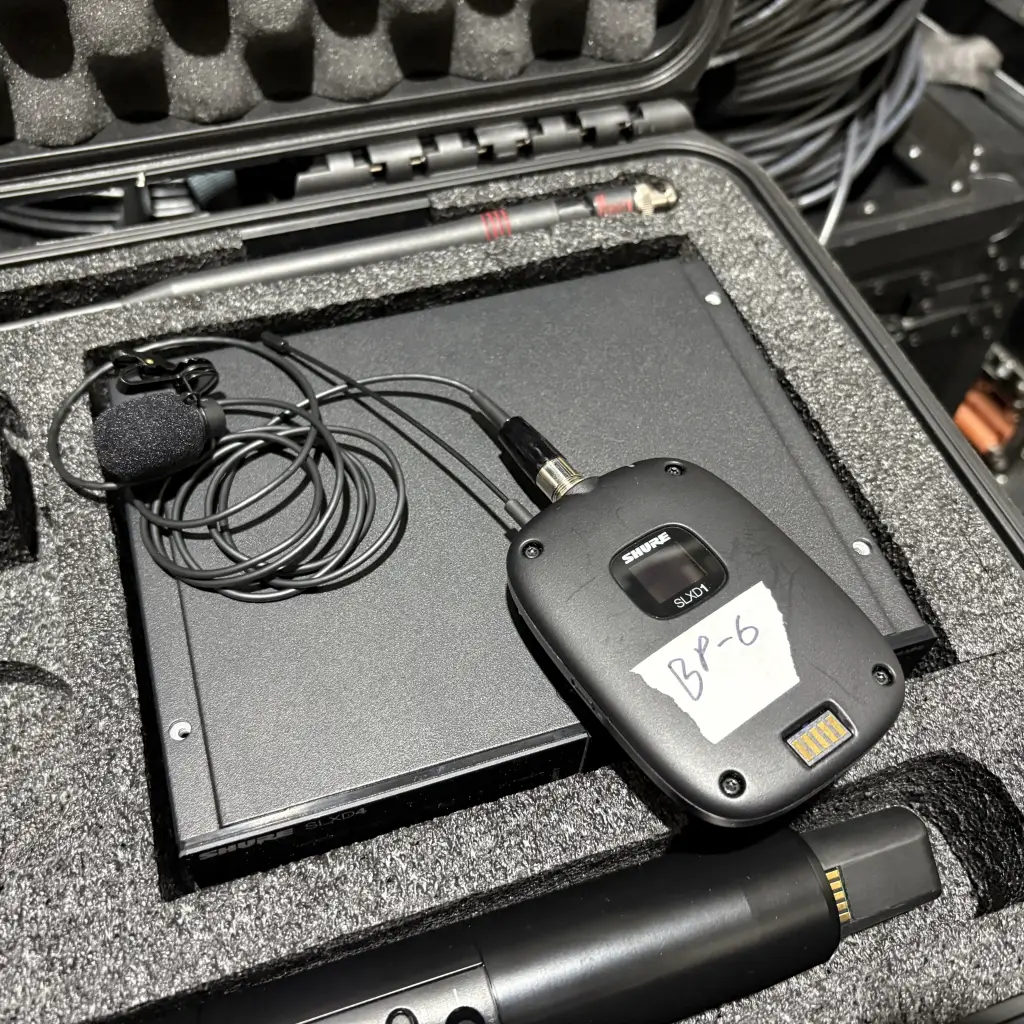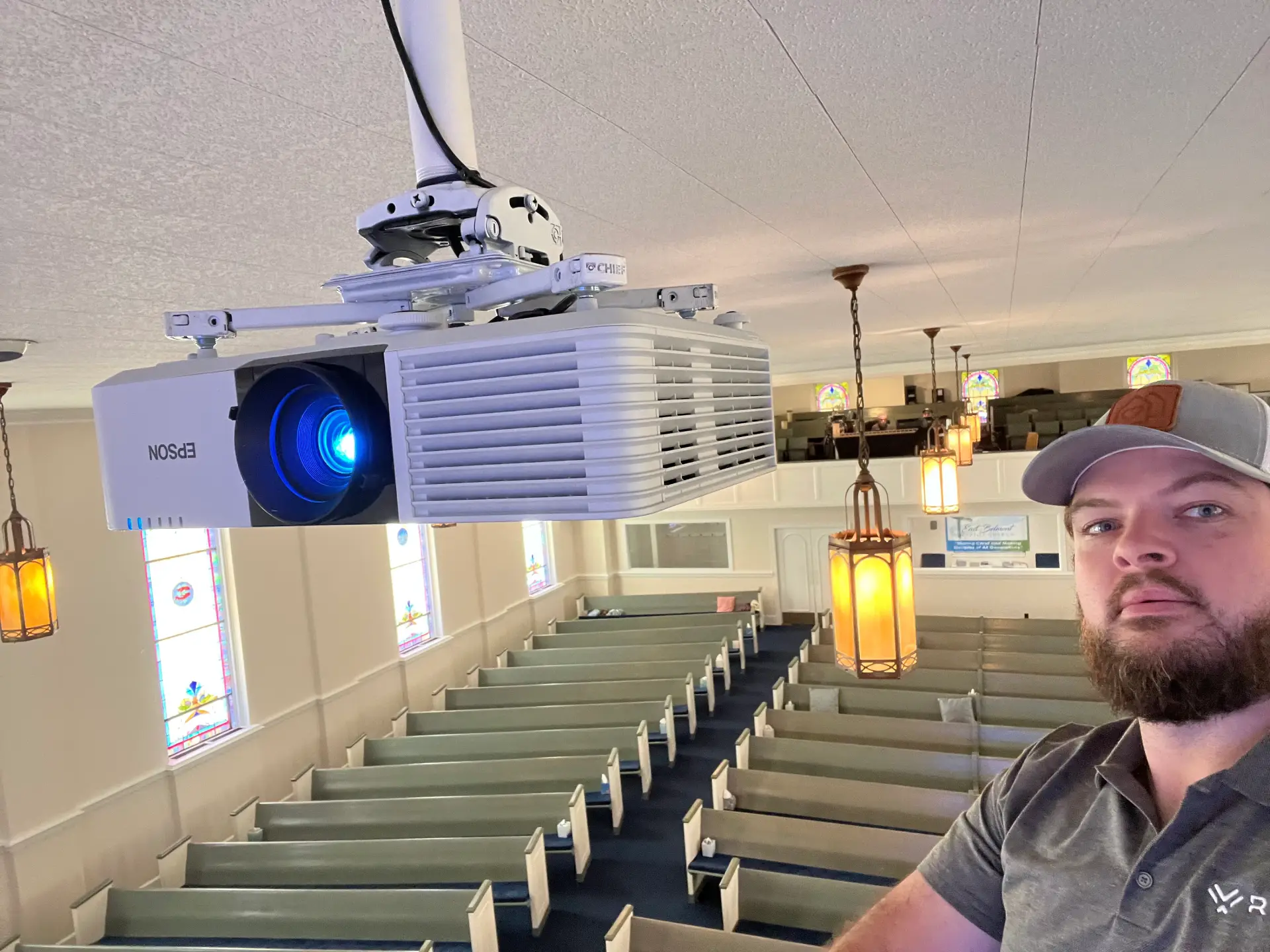Expert AV Integration for Any Space
At RYGID AV, we specialize in designing, installing, and integrating AV solutions that enhance communication, engagement, and functionality. Whether you're developing a corporate office, auditorium, or worship space, our team ensures seamless performance and long-term reliability.
With a commitment to cutting-edge technology and expert craftsmanship, we partner with architects, engineers, and construction professionals to deliver scalable AV systems that work flawlessly from day one.

Strategic Planning for AV Success
A well-planned AV system starts with expert consultation. We assess your space, needs, and goals to develop a tailored solution that delivers lasting performance.
Services
Services

Custom AV Solutions Built for Your Space
Our design process ensures your AV system is optimized for function, scalability, and ease of use—whether for a corporate space, auditorium, or house of worship.

Expert Installation, Seamless Execution
From cabling to system calibration, our skilled technicians handle every aspect of installation with precision, ensuring peak performance from day one.

Bringing It All Together for Maximum Performance
We ensure every AV component—audio, video, control systems—works together effortlessly, creating a fully connected and intuitive experience.

Strategic Planning for AV Success
A well-planned AV system starts with expert consultation. We assess your space, needs, and goals to develop a tailored solution that delivers lasting performance.
Services
Services

Custom AV Solutions Built for Your Space
Our design process ensures your AV system is optimized for function, scalability, and ease of use—whether for a corporate space, auditorium, or house of worship.

Expert Installation & Execution
From cabling to system calibration, our skilled technicians handle every aspect of installation with precision, ensuring peak performance from day one.
Bringing It All Together for Maximum Performance
We ensure every AV component—audio, video, control systems—works together effortlessly, creating a fully connected and intuitive experience.


Consult
Design
Implement
We keep AV integration simple
Managing an AV project can be complex, but our streamlined process ensures a smooth experience. We stay focused and on task with three key steps:

Powerful AV for Unforgettable Experiences
Ensure every audience member enjoys clear sound, immersive visuals, and seamless lighting with an AV system designed for large-scale venues.
Solutions
Services

Smarter Meetings with Seamless AV
From video conferencing to wireless presentations, we design AV solutions that enhance communication and collaboration in any conference space.

Clear Sound & Visuals for Meaningful Worship
Create an engaging worship experience with expertly designed AV systems that enhance sound clarity, visual impact, and live streaming capabilities.

High-Performance AV for the Modern Workplace
Equip your office with professional AV solutions that support meetings, presentations, and digital signage, ensuring seamless daily operations.

Powerful AV for Unforgettable Experiences
Ensure every audience member enjoys clear sound, visuals, and lighting with an AV system designed for auditoriums.
Solutions
Services

Smarter Meetings with Seamless AV
From video conferencing to wireless presentations, we design AV solutions that enhance communication and collaboration in any conference space.

Clear Sound & Visuals for engaging Worship
Create an engaging worship experience with expertly designed AV systems that enhance sound clarity, visual impact, and live streaming capabilities.
High-Performance AV for the Modern Workplace
Equip your office with professional AV solutions that support meetings, presentations, and digital signage, ensuring seamless daily operations.


We Take Pride in Our Work
Every project is unique, and we approach each one with precision and care. Whether upgrading a conference room or designing an auditorium AV system from the ground up, we create tailored solutions that enhance communication, engagement, and performance.

We Take Pride in Our Work
Every project is unique, and we approach each one with precision and care. Whether upgrading a conference room or designing an auditorium AV system from the ground up, we create tailored solutions that enhance communication, engagement, and performance.
Clear, Engaging Sound for Worship
Powerful Outdoor Sound & Visuals
Seamless Meetings & Presentations
Creating A Welcoming Visitor Experience
Don’t Take Our Word for It – Take Theirs!
We take pride in delivering AV solutions that enhance communication, engagement, and performance. But don’t just take our word for it—hear directly from our satisfied clients who trust RYGID AV for their AV integration needs.
Recent Blog & News
Explore our latest news & articles below
Where to Contact + Connect with RYGID AV
Mooresville, NC 28117









.webp)

